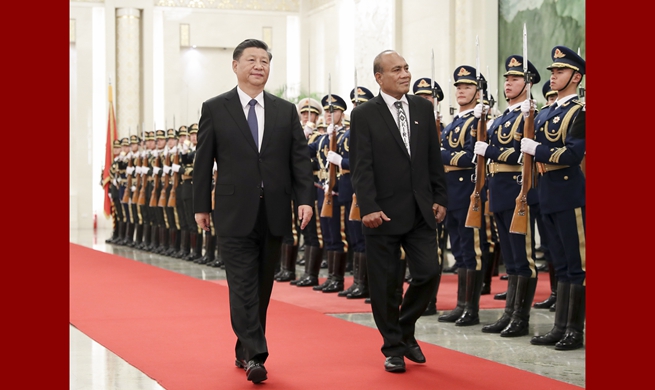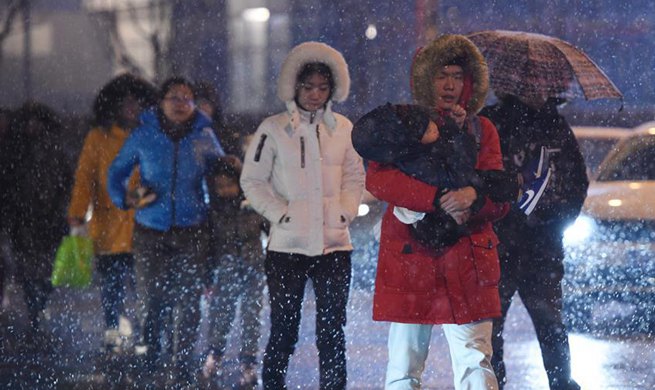BERLIN, Jan. 6 (Xinhua) -- Germany could miss its national target to cover 65 percent of gross electricity consumption with renewable energies in 2030, according to an analysis published by the Institute of Energy Economics (EWI) at the University of Cologne on Monday.
"The calculations for the expansion of renewable energies and the development of electricity demand indicate that Germany will miss the 65 percent target in 2030," said Max Gierkink, manager at EWI.
According to EWI, gross electricity consumption could rise to 748 terawatt hours (TWh) by 2030. At the same time, electricity generation from renewables in Germany would increase to 345 TWh, resulting in a share of renewable energies of only 46 percent.
The current model used by the German government would assume a gross electricity consumption of only 595 TWh by 2030 which would be "slightly below" the current level, EWI pointed out.
"The assumptions of the German government regarding future electricity demand are untenable," Hermann Albers, president of the German Wind Energy Association (BWE) told Xinhua on Monday.
Gierkink stressed that "the central drivers" for the increase of gross electricity consumption in Germany were the "growing number of electric vehicles and heat pumps." The production of green hydrogen using the electrolysis process was "also gaining in importance."
According to the EWI analysis, transport alone would boost electricity consumption in Germany by 64 TWh by 2030. At the same time, the rising number of electric heat pumps would drive energy consumption in buildings by 17 TWh.
On the other hand, the electricity consumption by the German industry was estimated to fall by 15 TWh because of improvements in energy efficiency, according to the analysis.
"German industry is embarking on the path of decarbonization and investing in CO2-free production processes," Albers said, adding that "if renewable energies are not expanded quickly enough, there is a threat of a green electricity gap that will make investments in power-to-gas, electro mobility and renewable heating technologies absurd."











